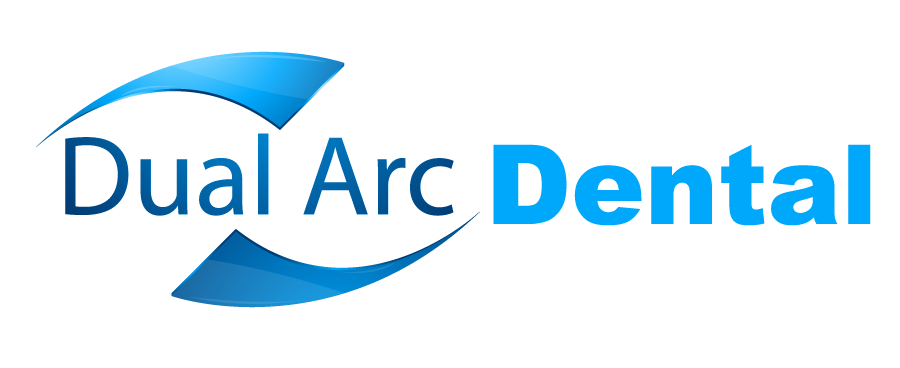
Team Dualarcdental July 16, 2025
When sudden pain strikes your teeth or gums, it’s hard to ignore. Some dental issues can’t wait for a regular check-up. You may need urgent dental care right away. Knowing what counts as an emergency and what happens during your visit can help ease the anxiety.
This guide explains five common dental emergencies and what typically happens when you arrive for urgent dental care.
1. Severe Toothache That Won’t Go Away
A mild toothache may go away with time, but a sharp or throbbing pain is a different story. If it keeps you up at night or makes it hard to eat, you need quick help.
What you may notice:
- Constant, severe pain
- Sensitivity to hot or cold
- Swollen gums around one tooth
What usually happens during care:
- The dentist will examine the tooth closely
- You may need an X-ray to check for infection or decay
- Treatment could include a filling, root canal, or drainage if there’s an abscess
This is a common reason people seek urgent dental care, especially when pain becomes unbearable.
2. Chipped or Broken Tooth After an Accident
Teeth can break easily from a fall, biting hard food, or sports injuries. Even if it doesn’t hurt much, it’s best not to ignore it.
Signs it’s an emergency:
- Tooth feels sharp or jagged
- Pain when biting
- Bleeding from the gum line
What the dentist may do:
- Assess how deep the break is
- Smooth sharp edges to prevent cuts
- Use a dental crown or bonding material to restore the tooth
In more serious cases, a root canal may be necessary before fixing the tooth.
3. Knocked-Out Tooth
A tooth that has completely come out of the socket needs attention within the hour. The quicker you act, the better the chances of saving it.
Steps to take right away:
- Hold the tooth by the crown (not the root)
- Rinse it gently with water if dirty
- Try placing it back in the socket or store it in milk
What to expect at the clinic:
- The dentist will check the socket
- X-rays may be taken to rule out fractures
- If replanting is not possible, a replacement plan will be discussed
Time is very important in this type of urgent dental care.
4. Swollen Face or Gums from Infection
Swelling in the mouth or jaw can be caused by an infection. This needs fast treatment as it can spread or affect breathing in severe cases.
Symptoms to watch for:
- Painful, red, swollen gums or cheeks
- Fever or general illness
- Bad taste in the mouth
During your visit:
- The dentist will locate the source of infection
- You may receive antibiotics
- Drainage or tooth removal might be necessary
Infections are one of the most dangerous forms of urgent dental care needs.
5. Broken or Lost Dental Filling or Crown
If a crown or filling falls out, the exposed tooth is more sensitive and prone to damage. This doesn’t always hurt right away, but it can get worse if left untreated.
When to worry:
- Pain when chewing
- Food getting stuck in the area
- Tooth feels rough or sharp
The dentist may:
- Re-cement the crown if it’s intact
- Replace the filling with a new one
- Use temporary material until full treatment is possible
Even small dental issues like this can lead to bigger problems, making it a valid reason for urgent dental care.
What Happens During Your Emergency Visit
If you’re unsure what happens during an emergency visit, here’s what most clinics do when you walk in with a dental issue:
Typical steps:
- Quick initial check to see how severe the case is
- Questions about pain, history, and how the injury occurred
- X-rays if necessary
- Immediate treatment or temporary relief
- Follow-up appointment if long-term work is needed
Most people worry about pain during dental visits, but emergency treatments are aimed at reducing pain, not causing more. Dentists often use numbing agents or sedation if needed.
You will be guided every step of the way. No guesswork, no pressure.
How to Know If It’s an Emergency
Not all dental problems feel urgent at first. Here’s a quick way to decide whether to call right away or wait:
Call right away if:
- There is bleeding that won’t stop
- You can’t sleep due to tooth pain
- There’s visible swelling in the face or jaw
- A tooth has fully come out
- Pain is getting worse, not better
These are all signs you may need urgent dental care.
Why It’s Important to Act Fast
Delaying treatment can lead to:
- Infection spreading to other parts of the body
- Tooth loss
- Increased cost and complexity of treatment later
- Long-term damage to nerves or bone
Urgent dental care isn’t just about comfort; it’s also about preventing serious health risks. Your teeth and gums are linked to your overall health.
When You Need a Dentist for Dental Emergencies
Some people hesitate to go in because they’re not sure if their problem is “serious enough.” If you're in pain or something feels off, it’s better to be safe.
A dentist for dental emergencies can tell the difference between a minor issue and something more serious—and treat it before it gets worse.
Steady Support During Dental Distress
Dental emergencies can happen at the worst moments—during travel, at night, or in the middle of a workday. The stress of not knowing what’s wrong adds to the pain.
That's where care providers like Dual Arc Dental stand out. We focus not just on fixing the issue, but on keeping the patient calm and comfortable. With a team trained to handle urgent cases quickly, patients can expect fast relief, clear guidance, and respectful care from start to finish.
